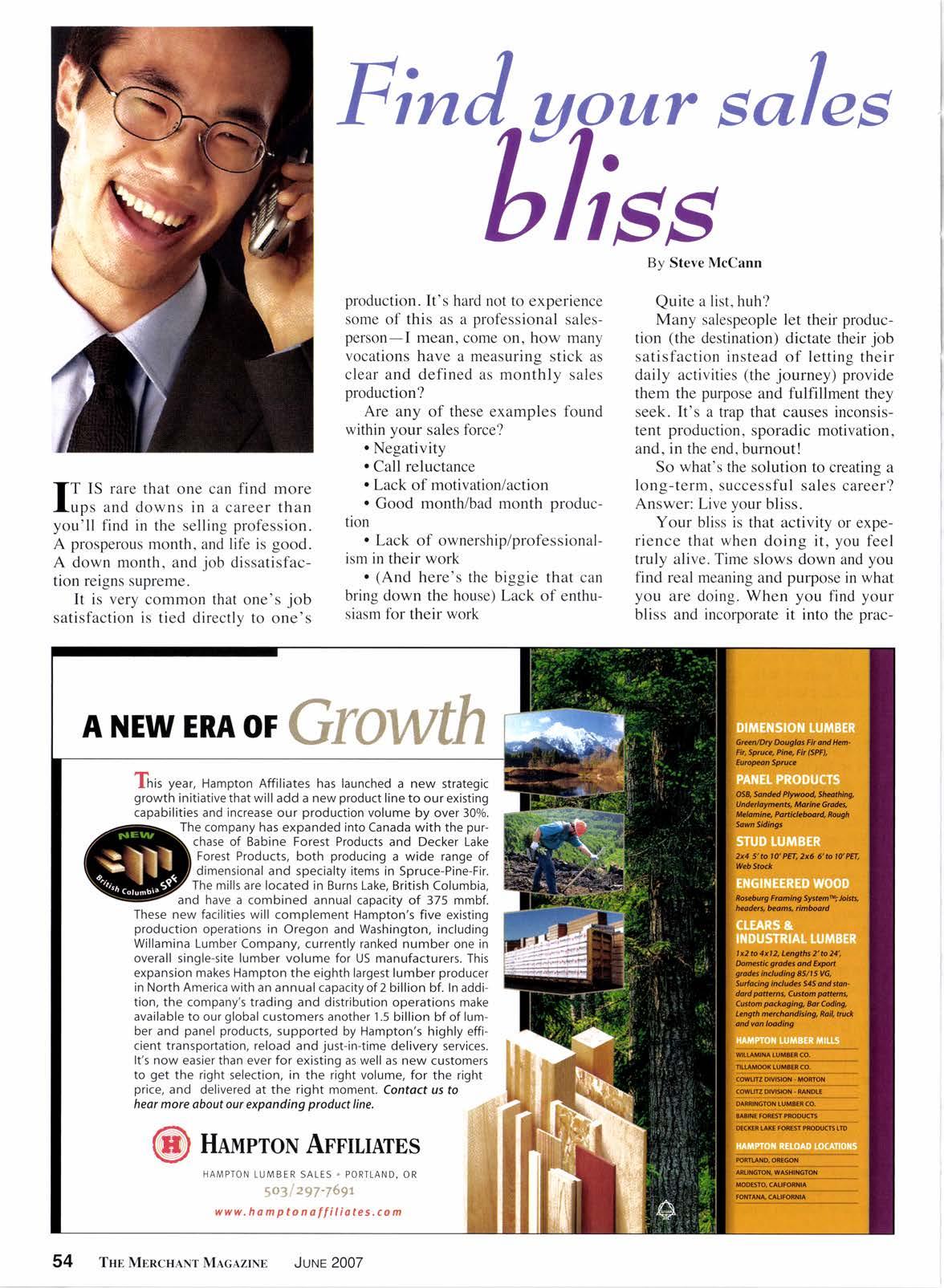
2 minute read
APA Questions Rules On lmports
APA-The Engineered Wood Association is concerned that California's new formaldehyde-emissions standards may not be enforced equally to domestic and foreign manufacturers of composite wood products (see May, p.76).
"Enforcement remains an issue because substantial volumes of the wood products in question are imported," said president Dennis Hardman. "And we know there is product coming into the country that is sub-standard in other respects."
The California Air Resources Board adopted the new standards in late April and implementation is scheduled to begin in 2009. Products targeted by the measure include particleboard, medium density fiberboard, and hardwood plywood, products typically made with urea formaldehyde adhesives. Structural engineered wood products such as softwood plywood, oriented strand board, glulam timber, wood I-joists, and laminated veneer lumber are exempt since formaldehyde emissions from those products are negligible.
The limits would be the strictest in the world and impose an annual cost of $2.5 billion on the domestic economy, according to the Composite Panel Association. All domestic and foreign manufacturers would be required to have their products certified by a third-party laboratory approved by CPA and then labeled with proof of compliance. Manufacturers, importers, distributors, fabricators, and installers would be held responsible for ensuring that their products comply.
Hardman said that APA is concerned about certification loopholes that could permit non-complying imported products, especially material from China, to enter the California market. Sampling tests conducted by the association revealed that the average glue-bond performance of nontrademarked imported concrete-form panels did not meet APA standards. In addition, the load capacity of the samples was 4OVo lower and had formaldehyde emissions levels up to 500 times higher than those of domestic products.
The
On April 18, the International Trade Commission began an investigation of Chinese hardwood plywood imports that are fraudulently stamped. Results of the investigation are due in June 2008.

Pro-Build Chooses Denver
Pro-Build Holdings Inc. has selected Denver, Co., for its new corporate headquarters
Since March, Pro-Build has occupied temporary space in the Denver Tech Center. Next month, the company will move to a permanent 15,000sq. ft. space in a building formerly occupied by Oracle Software. In time, the chain will also consolidate several data centers at one location, possibly in Denver.
"The large homebuilders want to do business with folks that can supply all of their locations," said c.e.o. Paul Hylbert. He said that Denver was cho- sen over Dallas or Chicago because of Denver International Airport and the city's attractiveness as a place to live.
The chain has about 500 locations and l7O0 employees nationwide. One Pro-Build division, Home Lumber, is based in Littleton, Co.
Dixieline Expands Inland
Dixeline Lumber & Home Centers, San Diego, Ca., opened a store May 24 at the new Orchard at Stone Creek shopping center in Murrieta, Ca. Store manager is Troy Staufenbeil.
The 4-acre site includes a 2.5-acre lumberyard, 2,000-sq. ft. mill, and 27,000-sq. ft. store, including kitchen









